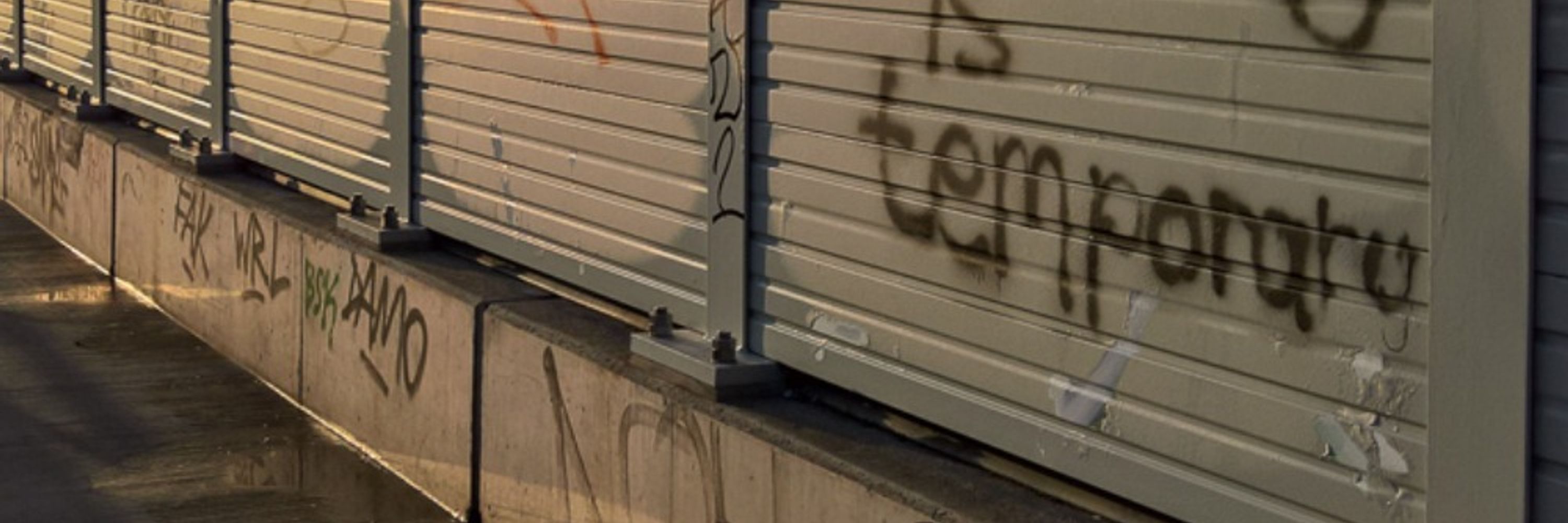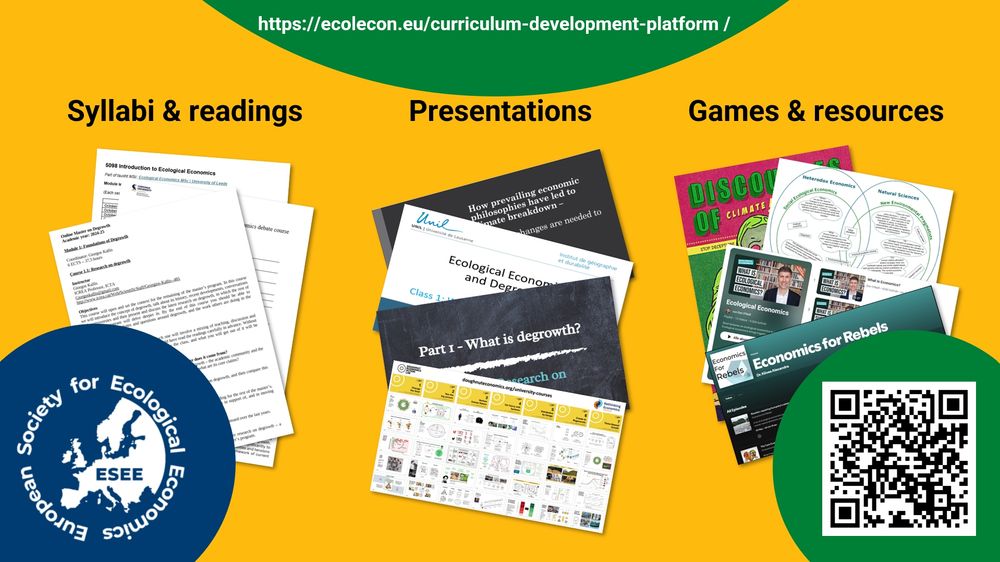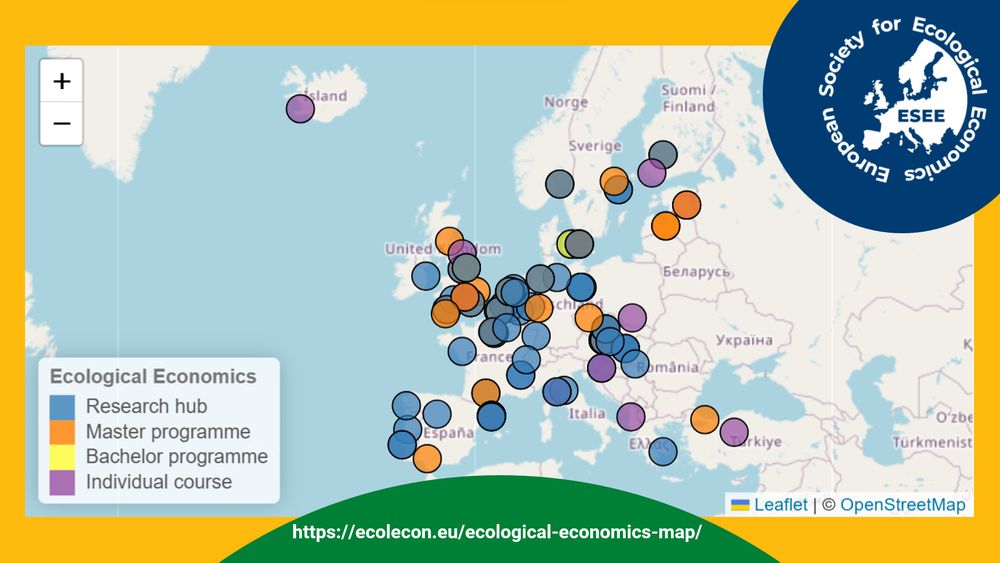Familiarizing Degrowth: Art and Grounded Communities
_by Graham Janz*_
_In the series_ _**Prospects for Degrowth**_
**Toward a voluntary and democratic degrowth******
Degrowth is voluntary and democratic. It can’t be achieved through violence or unjustified coercion –– though of course nature is coercive and, as Hannah Arendt puts it, so is the truth.[1] On the road toward degrowth, citizens of settlements ranging in size from neighbourhoods and hamlets to cities will need to share a favourable understanding of degrowth, and voluntarily participate in the labour necessary to achieve it, such as procuring and distributing basic needs for all in ecologically sustainable ways.
Equality is an imperative democratic principle that grants each person the power to live according to their own self-determination and participate meaningfully in shaping the polity in which they belong. Western democracy is frighteningly unequal in its emphasis of individualistic freedom over equality and fellowship and the domination of financial institutions that operate outside of democratic governance. This system prevents most people from developing their full potential as human beings. Systems that protect inequality embolden the wealthy to further enrich themselves and destroy the planet for selfish gain. The degrowth movement can break down social hierarchies by promoting equality and putting real democracy into practice.
When I mention degrowth to people I meet, they say they’ve never heard of it. The environmental movement and NGOs have not wholeheartedly embraced degrowth either. They remain attached to green growth, green jobs, and green transition – or a solar and wind powered version of the current system. Some advocates still confuse degrowth with collapse. Degrowth advocacy has much educational work ahead if the movement is to reach the critical mass necessary for its voluntary and democratic requirements.
**Infiltrating the arts with degrowth******
To familiarize degrowth ideas, activists could engage more in fiction, films, songs, and visual arts. Critics could review past and current media from a degrowth perspective, discussing how a film or book does or does not convey degrowth ideas. Activist filmmakers and authors could insert degrowth into popular genres like romantic comedy. For example, take Jane Austin’s _Pride and Prejudice_ and remove the poverty looming overhead for unmarried women, or create an original story where someone from a degrowth urban area travels to stay in a farming village, demonstrating the diversity within the movement and how such differences might play out comedically and romantically. These stories can take place in transformational stages and/or during a period when degrowth has already been achieved and apply existing theory, like thought experiments performed by characters or actors.
Authors will need to consider interpersonal problems that might arise and invent ways of resolving them, such as power hungry individuals seeking to assert themselves as rulers or unrelenting advocates of unpopular and potentially harmful ideas. A comedic solution for an overinflated ego could be to make them into a king and remove any possibility that they might rule over another person. For example, every member of the community moves away before the coronation ceremony. These ‘degrowth films’ are likely to be low budget and probably won’t make it to the masses, but a globally networked degrowth movement engaged in local cinema can spread our degrowth rom coms around the world.
Songs and poetry can focus on moments where degrowth already dwells. For example John K. Samson’s _Winter Wheat_ :
_No one knows we’re anywhere we’re not supposed to be,___
_so stay a while and watch the wind throw patterns on a field.___
Here Samson calls for an unhurried meditation unmediated by technology and direct interaction between self and planet, shared with friends, a lover, or a phantom of the songwriter. In a similar way the Master Patterner in Ursula le Guin’s _Earthsea_ dedicates his life to learning the wisdom of the ancient trees by reading the patterns their shadows cast onto the ground in the Immanent Grove. Beyond wisdom and meditation, absorbing oneself in activities such as these are costless rebellions against consumerism and the continuous profit-obsessed erosion of time and space. If everyone dropped everything to watch grass blow for hours on end, the economy would be at a standstill. It would be a revolution.
My song _I Want To Smash Every Car That I See,_ influenced by John K. Samson and Ursula le Guin, imagines a post-work society and the end of cars where asphalt landscapes are replaced with gardens:
_Our days will be uncomplicated, my mind will be at ease,___
_We’ll spend time watching the movement of the leaves.___
My conception of post-work doesn’t involve automation, but a shift away from work for the sake of economic growth/capital and work for work’s sake toward a just redistribution of labour and its fruits, including reproductive and care work. There will be work in the garden after all. Immersed in a garden free from car noises, wonder and a love of life is ever present in the most minute details, even in the slight movement of leaves on a calm day.
Leisure and idleness, or slow living, have historically been the spoils of the wealthy classes, made possible by the toil of the lower classes, alienated from the fruits of their labour. All people should be entitled to live as slowly as they wish – but never at the expense of any other person. A balance needs to be established.
Visual arts could depict scenes of degrowth life. For example, egalitarian slow living, a degrowth city, a cluster of small-scale collective degrowth farms, people engaged in collective decision making, scenes of care. Illustrations feed the imagination and can serve as instruction manuals.
**Community places for the dissemination of degrowth******
The recent election in Canada got me thinking more about community forming initiatives and how they can change the political landscape from below. In 2008 I volunteered to stuff mailboxes for Green Party MP candidate Dave Barnes in Brandon-Souris in Canada. Barnes was a high school teacher and taught a special Eco-Odyssey programme. Many of his young supporters were his former students, converts to an ecological ideal. They knew him and his enthusiasm for nature. He got 16% of the vote in that election, exceptional for the Green Party in a Conservative stronghold.
I’m not advocating for the Canadian Green Party here. It’s still a party of green growth. Yet, support for the Greens indicates a willingness to address climate change, biodiversity decline, and a whole host of other ecological problems. People who vote Green are likely to be more receptive to degrowth than Liberal or Conservative voters. Barnes and his Eco-Odyssey programme shows that immersing people (especially young people) in an ecologically focused educational or cultural environment is a way of changing the collective consciousness toward accepting degrowth. Unfortunately Eco-Odyssey was retired and many of the Green voters moved away or began voting differently (or more strategically). The anchor that grounded the movement was lifted.
The political party concentrates political and ecological efforts into a losing battle that fizzles out until the next election cycle. A new candidate appears out of nowhere and returns to nowhere when they lose. Effort should instead focus on building grounded ecological communities – anchors – at the local level that constantly push for system change. Local cinema, art galleries, concert halls, and other community facilities can bring diverse people together for shared experiences. These are places that could become catalysts for change at the local level.Where there are no community places for degrowth artists and activists, vacant buildings could be acquired and converted into cultural centres. Long-standing vacant buildings are not unusual in (sub)urban areas, though they might not always be in the best locations. Squatting shouldn’t be ruled out entirely, but squats are precarious. A secure situation could be achieved by working with municipal governments – a win-win for activists in need of buildings and city councillors searching for ways to reduce signs of urban decline.
Special measures invoking socially responsible uses of (sub)urban space should be recommended to be adopted by urban governments. Cultural activities, like art and community, the production of healthy and ecological food, non-commodified housing, and ecological restoration are examples of socially responsible building uses. Prolonged vacancy, abandonment, or the failure to sell an unused building within a specified timeframe are examples of irresponsible uses. Under these measures, municipal governments will be able to purchase long-standing vacant properties at non-market values – perhaps not without pushback from property rights advocates.
These measures should be applied with extreme caution and pertain only to long-standing vacant buildings as European colonialists in North America used similar reasoning to dispossess Indigenous people in a slow genocide. It’s likely that the owners of vacant buildings are real estate speculators or neglectful owners using them as tax write-offs. Others might already be publicly owned.
Once a building is acquired, a board of volunteers would ensure that it is converted into a cultural centre. The board would be responsible for raising funds related to repair and maintenance. The municipal government might offer to provide full or partial funding, it should be noted that conservatives are unlikely to provide financial assistance. A decade-long debate in Brandon, Manitoba centred on converting the historic Strand Theatre into a cultural centre ended with the building’s demolition. No one wanted to pay and repair costs only increased over time. Putting the financial burden on the volunteer board and classifying the building’s ownership as a type of common would allow for a sustained anti-capitalist culture to flourish without the looming risk of funding cuts during austerity cycles.
As an example, Alhambra is a leftist cultural centre in Oldenburg, Lower Saxony (Germany) that supports an autonomous community of anti-fascist, feminist, and LGBTQ groups. The building has regular concerts, presentations, open meetings, and a weekly Küfa (kitchen for everyone) where meals are made from discarded supermarket food. There is a bar, kitchen, dining area, places for meetings, and a large hall. The rooftop is covered in solar panels that provide electricity and a supplementary income. Every event raises money to pay for the building’s maintenance and materials needed for actions. Many German cities have similar centres. A degrowth cultural centre could have jam rooms, artist studios, and libraries with audio recording and filmmaking equipment in addition to a gallery, theatre, kitchen, and gathering spaces.
Volunteers could organize weekly environmental/political documentary showings in community centres and host discussions afterwards; seasonal bus trips to national parks and forests with knowledgeable guides, camping, and hiking to address growing nature deficit disorder; and Küfas and/or potluck[2] picnics in urban parks to bring people together for shared meals. At any event direct democracy should be put into practice. Such organized degrowth efforts might be happening already in various locations. It would be useful to map out, coordinate, and communicate between different organizations to strengthen connectivity between locales.
Depictions of degrowth in art make degrowth more familiar. Anchors – organizations grounded in physical places that host regular events – bring people together and make friendship formation possible. At the heart of everything this is what a strong social movement needs: people coming together to form meaningful and lasting friendships with a shared passion for system change and a willingness to push for that change. That means being inclusive and putting an effort in to make sure everyone feels they are welcome, but also to take action against abusers. Art, friendship, and grounded place-based communities are tools of resistance for the construction of a degrowth society.
**Acknowledgement** A special thank you to Anna Gregoletto for the helpful suggestions and to Alexandra for reminding me not to overthink. Thank you to Mark Burton for edits too.
**References**
[1] Taylor, A. (2019). _We Might Not Have Democracy, But We’ll Miss It When It’s Gone_. Metropolitan Books.
[2] or “Bring and Share”.
* **Graham Janz** was born in Brandon, Manitoba (Canada) and has spent the past years ungrounded and wandering between southern France and Sweden. He has a BA in Philosophy and a MSc in Socio-Spatial Planning.
### Share this:
* Click to share on Mastodon (Opens in new window) Mastodon
* Click to share on X (Opens in new window) X
* Click to share on Facebook (Opens in new window) Facebook
* Click to email a link to a friend (Opens in new window) Email
* Click to print (Opens in new window) Print
* Click to share on LinkedIn (Opens in new window) LinkedIn
*
Like Loading...
### _Related_



















